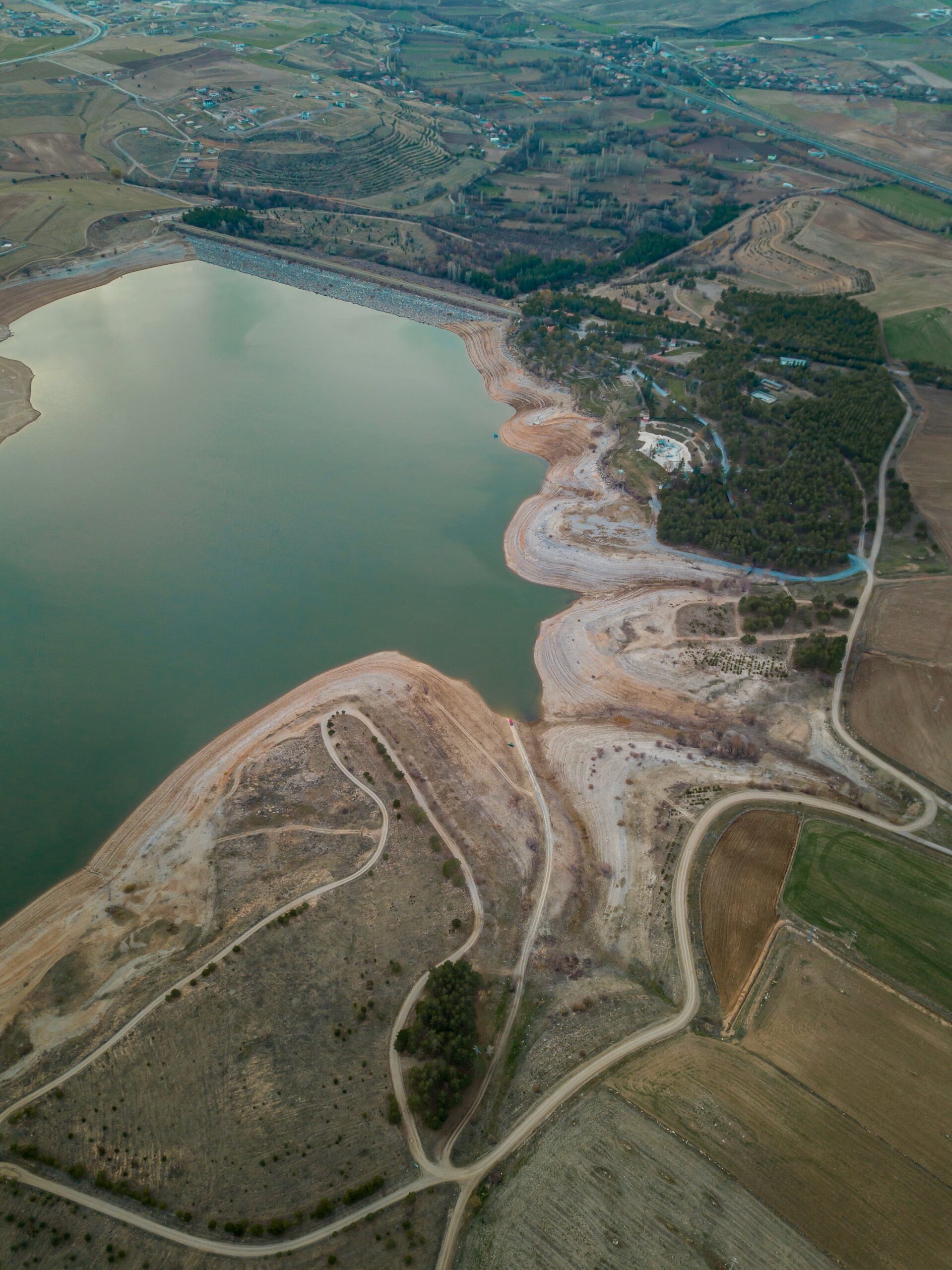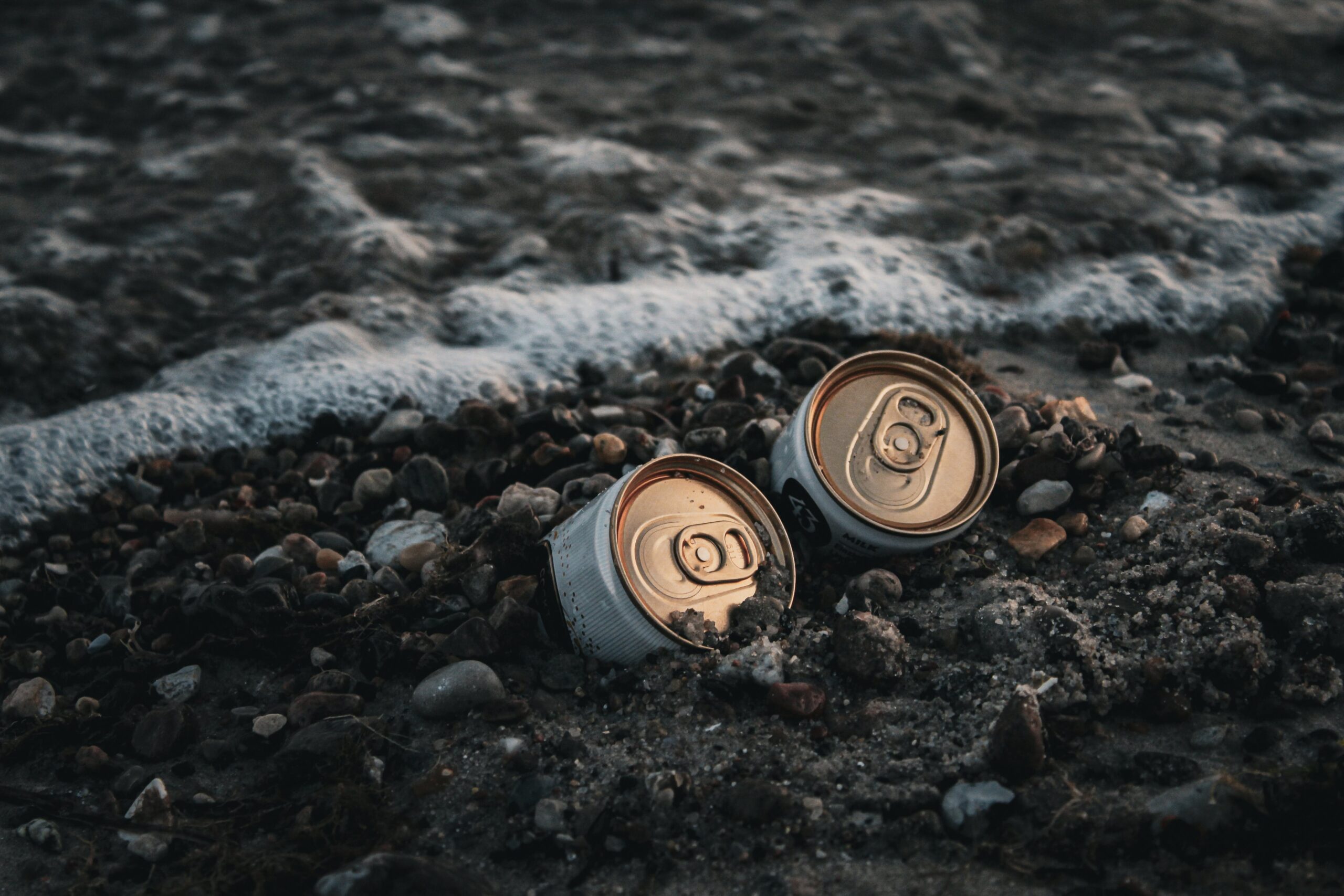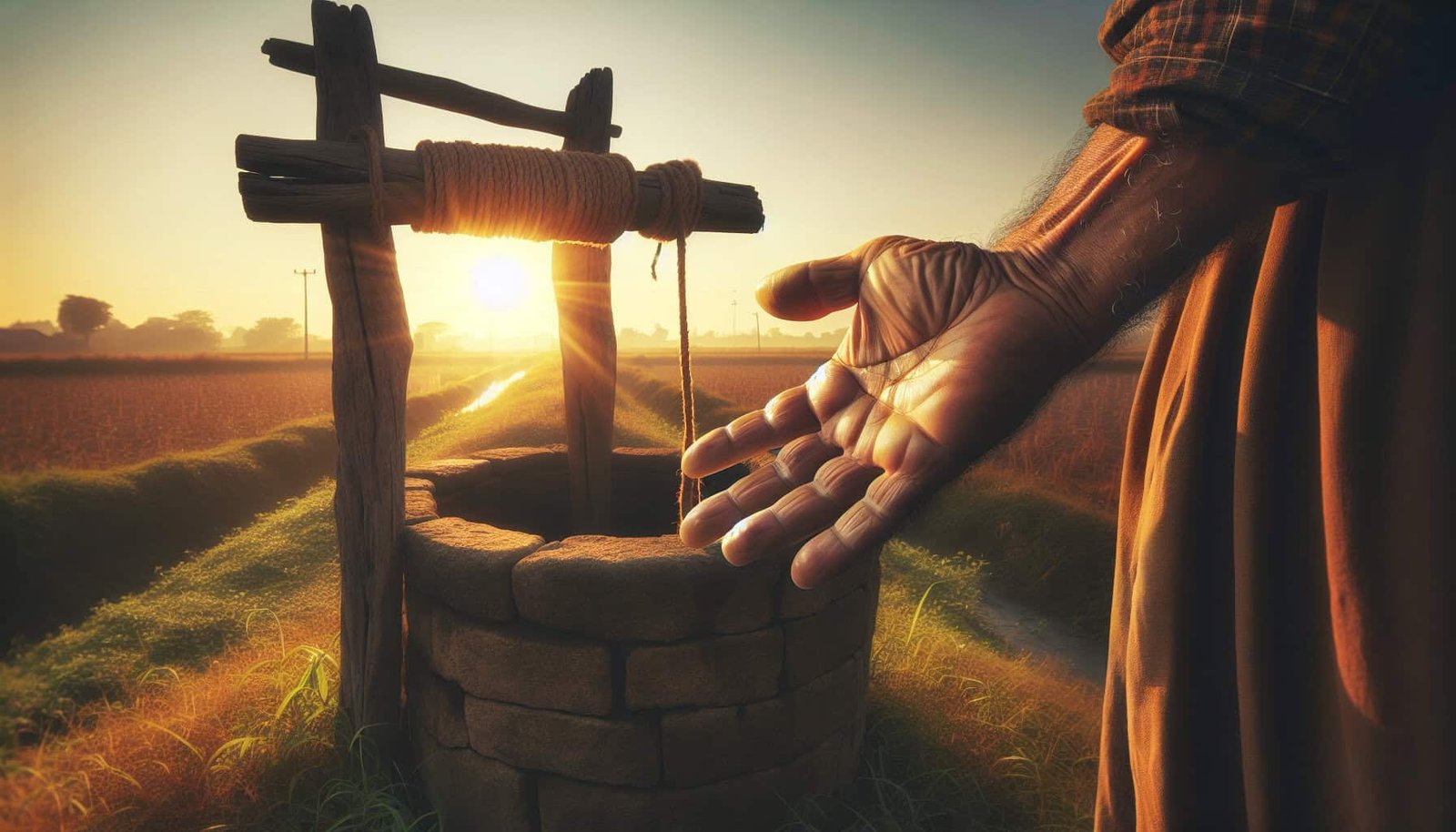If you are a well owner residing in an area plagued by well water supply issues, you may be wondering how to access the necessary resources to address your concerns. Fortunately, there are numerous avenues available to assist well owners like yourself in tackling these challenges. From government programs to local support networks, this article will delve into the various options at your disposal and provide you with valuable insights on how to navigate the path towards overcoming well water supply issues. Whether you’re seeking guidance on water testing, maintenance, or even financial assistance, help is just around the corner.
Government Agencies
Environmental Protection Agency (EPA)
The Environmental Protection Agency (EPA) is a government agency dedicated to ensuring the protection of the environment and public health. Their initiatives and programs focus on preventing pollution, enforcing environmental regulations, and promoting sustainable practices. For well owners in areas with well water supply issues, the EPA can provide valuable resources and information on water quality testing, treatment options, and regulations pertaining to well construction and maintenance. The EPA’s website is a great starting point to access their comprehensive database of educational resources, guides, and publications tailored specifically to well owners.
Department of Health and Human Services
The Department of Health and Human Services (HHS) is another government agency that plays a crucial role in ensuring the health and well-being of individuals and communities. Within the HHS, agencies such as the Centers for Disease Control and Prevention (CDC) and the National Institutes of Health (NIH) provide resources and guidelines related to well water safety and quality. These resources include information on the health risks associated with contaminated well water, guidelines for water testing and treatment, and recommendations for well maintenance and disinfection. Well owners should explore the HHS’s website for valuable information and guidance on addressing well water supply issues.
Department of Agriculture
The Department of Agriculture (USDA) is primarily known for its role in promoting agriculture and supporting rural communities. However, the USDA also offers resources and programs specifically designed to assist well owners. The USDA Rural Development Programs provide financing options for residents in rural areas, including funds for improvements to water and wastewater systems. Additionally, the USDA’s Natural Resources Conservation Service (NRCS) offers technical assistance and financial incentives to implement conservation practices that can benefit well water quality. Well owners in areas with well water supply issues should reach out to their local USDA office to learn about potential funding opportunities and conservation programs available to them.
Non-profit Organizations
National Ground Water Association (NGWA)
The National Ground Water Association (NGWA) is a non-profit organization dedicated to advancing the groundwater industry and promoting the responsible use and management of groundwater resources. The NGWA provides a wealth of resources and support for well owners, including educational materials, webinars, and access to experts in the field. Their website is a valuable source of information on well construction and maintenance, water quality testing, and treatment options. The NGWA’s well-owner focused initiatives, such as the “WellOwner.org” website, provide practical guidance and resources for addressing well water supply issues.
WellOwner.org
WellOwner.org is an initiative established by the NGWA to provide well owners with comprehensive information and resources. The website offers a variety of tools, including state-specific information on well regulations, listings of local well contractors, and resources for water testing and treatment. WellOwner.org also includes educational articles, videos, and interactive features to help well owners better understand their well systems and address potential issues. By visiting WellOwner.org, well owners can access a wealth of reliable and user-friendly information to aid them in navigating well water supply issues.
Rural Community Assistance Partnership (RCAP)
The Rural Community Assistance Partnership (RCAP) is a non-profit organization that focuses on providing technical assistance and resources to rural communities in need, including those with well water supply issues. RCAP offers services such as water and wastewater system assessments, training programs for well owners, and assistance with accessing funding and grant opportunities. Well owners in rural areas can benefit from RCAP’s expertise and support, as they can provide guidance on a wide range of topics, including water testing, well maintenance, and emergency water supply options. Contacting RCAP can help well owners find the necessary resources and solutions for well water supply challenges.

Local Extension Offices
Contacting Local Extension Office
Local extension offices, often affiliated with universities, are valuable resources for well owners seeking assistance and information. Contacting your local extension office can connect you with knowledgeable professionals who can provide guidance on well water testing, treatment methods, well construction and maintenance, and local regulations. These offices often have access to state-specific resources and can connect well owners with other relevant organizations and experts in their area. It is recommended to reach out to your local extension office to inquire about available services and resources tailored to well owners in areas with well water supply issues.
Services Provided by Extension Offices
Local extension offices offer a range of services to support well owners in addressing well water supply issues. They often provide educational workshops, webinars, and publications on topics such as water quality testing, well construction and maintenance best practices, and appropriate water treatment options. Extension offices may also have partnerships with local laboratories that offer certified water testing services. Additionally, they can provide information on state-specific grants, financial assistance programs, and regulatory requirements related to well ownership. By utilizing the services provided by local extension offices, well owners can gain access to essential resources and expert advice tailored to their specific needs.
Well Water Testing and Treatment
Finding Certified Laboratories
Water testing is a crucial step for well owners in areas with well water supply issues. It allows individuals to understand the quality and safety of their well water, identify potential contaminants, and determine suitable treatment options. Certified laboratories play a vital role in providing accurate and reliable water test results. Well owners can find certified laboratories by consulting their local extension office, state health department, or the EPA’s list of certified drinking water testing laboratories. It is important to ensure that the laboratory chosen is accredited and follows recognized testing protocols to obtain accurate and valid results.
Understanding Water Test Results
Once well water is tested, it is essential for well owners to understand the test results to make informed decisions regarding treatment options and well maintenance. The laboratory that performed the test should provide a detailed report outlining the water chemistry, including the presence of contaminants, microbial activity, and any other relevant parameters. Well owners can refer to resources provided by government agencies such as the EPA and the CDC for guidance on interpreting these results. In some cases, the test results may indicate the need for immediate action to address specific contaminants or to implement appropriate treatment methods.
Water Treatment Options
In instances where water test results indicate the presence of contaminants or poor water quality, well owners will need to consider appropriate treatment options. There are various water treatment technologies available, ranging from point-of-use filters to whole-house treatment systems, depending on the specific needs identified in the water test results. It is important for well owners to research and consult with experts, such as local extension offices or water treatment professionals, to determine the most suitable treatment option for their particular situation. Factors such as the types of contaminants present, the desired treatment level, and the budget should be considered when selecting a treatment system.

Financial Assistance Programs
USDA Rural Development Programs
The USDA Rural Development Programs provide financial assistance to individuals and communities in rural areas, including support for water and wastewater systems. Well owners facing well water supply issues may be eligible to receive funding for well repairs, upgrades, or the installation of treatment systems through these programs. The USDA offers various loan and grant programs with specific eligibility criteria, and well owners are encouraged to reach out to their local USDA office or visit the USDA’s website for more information on available programs in their area.
Weatherization Assistance Program
The Weatherization Assistance Program, operated by the Department of Energy, offers financial assistance to low-income households to improve energy efficiency and reduce utility costs. In some cases, well-related repairs, such as fixing leaky pipes or upgrading water heating systems, may be eligible for funding through this program. Well owners who meet the program’s income eligibility requirements can contact their local weatherization assistance agency to inquire about available funding for well improvements that could help address well water supply issues.
State-specific Grant Programs
Many states offer grant programs that provide financial assistance to well owners facing well water supply issues. These programs vary by state and may include initiatives aimed at promoting well water testing, well rehabilitation or replacement, or the installation of treatment systems. Well owners are encouraged to research the grant programs available in their state and contact their state health department or local extension office for more information on eligibility criteria and the application process. Taking advantage of state-specific grant programs can provide much-needed financial support to address well water supply challenges.
Educational Resources
Online Guides and Handbooks
Well owners in areas with well water supply issues can benefit from a wealth of online guides and handbooks dedicated to educating and empowering them. Government agencies such as the EPA and the CDC, as well as non-profit organizations like the NGWA, offer comprehensive resources accessible on their websites. These resources cover a wide range of topics, including well construction and maintenance, water quality testing, treatment methods, and regulatory information. Accessing these online guides and handbooks allows well owners to gain a deeper understanding of their well systems, potential issues, and available solutions.
Training Workshops and Webinars
For well owners seeking a more immersive and interactive learning experience, attending training workshops and webinars can be highly beneficial. Local extension offices, non-profit organizations, and government agencies often organize such events to educate well owners on various topics related to well water supply. These workshops and webinars may cover subjects like water testing methods, well maintenance best practices, water treatment technologies, and regulatory compliance. Participating in these training opportunities enables well owners to learn from experts in the field, ask questions, and gain practical knowledge to address well water supply issues more effectively.
Publications and Videos
Publications and videos are valuable educational resources for well owners. Government agencies and non-profit organizations produce a wide range of publications, such as brochures, fact sheets, and technical reports, that provide in-depth information on well water supply issues and potential solutions. Additionally, educational videos can offer visual demonstrations, step-by-step instructions, and real-life case studies to help well owners better understand well-related topics. Well owners can access these resources through the websites of governmental agencies, non-profit organizations, or their local extension offices, providing them with a wealth of information to navigate well water supply issues.

Well Construction and Maintenance
Hiring a Licensed Well Contractor
When it comes to well construction, maintenance, and repairs, it is essential to hire a licensed well contractor. Well contractors possess the expertise and experience needed to ensure that wells are constructed properly, meet regulatory requirements, and are maintained to preserve water quality and system functionality. Recommendations for licensed well contractors can often be obtained from local extension offices, state health departments, or local well owners associations. Prior to hiring a well contractor, well owners should request proof of licensing, verify their reputation and track record, and discuss the specific requirements and expectations for the project.
Well Owner’s Maintenance Responsibilities
Well owners have important responsibilities when it comes to the maintenance of their wells. Regular maintenance tasks include inspecting the wellhead for any signs of damage or deterioration, ensuring proper operation of the well pump, and checking for leaks in the plumbing system. Well owners should also be mindful of potential sources of contamination near the well, such as septic systems or chemical storage areas, and take measures to protect the well from these threats. Well maintenance activities should be performed in accordance with recommended guidelines provided by government agencies, experts, and local extension offices to ensure the long-term reliability and safety of the well water supply.
Well Rehabilitation and Relining
In certain cases, well owners may encounter issues with well performance or water quality that can be addressed through well rehabilitation or relining. Well rehabilitation involves various techniques, such as hydrofracturing or chemical treatments, to restore or improve the yield or water quality of a well. Well relining, on the other hand, involves inserting a liner into the well to address structural issues or prevent contamination. Well owners experiencing well water supply issues should consult with licensed well contractors or contact their local extension office for guidance and assistance in determining the appropriate course of action for well rehabilitation or relining specific to their situation.
Legal and Regulatory Information
Understanding Local Regulations
Every locality and jurisdiction has its own set of regulations and requirements pertaining to well construction, maintenance, and operation. It is crucial for well owners to understand and comply with these regulations to ensure the safety, functionality, and legal compliance of their wells. Well owners should consult their local health department or regulatory authority to obtain information on local well regulations, permit requirements, and any other legal obligations. By understanding and adhering to local regulations, well owners can avoid potential fines, penalties, or health risks associated with non-compliance.
Permits and Water Rights
In addition to local regulations, well owners may need to obtain permits and/or water rights for their wells, depending on their location and the area’s water resources management practices. Well permits are typically required before a well can be drilled or modified, and they ensure that the well construction meets established standards. Water rights, on the other hand, provide the well owner with legal access to the water source. Well owners should contact their local water resource management agency, state water board, or local extension office to understand the specific permit and water rights requirements in their area.
Public Health Codes
Public health codes often contain regulations and guidelines related to well water quality and safety. These codes may include standards for water testing, treatment, and disinfection, as well as requirements for well construction and maintenance. Well owners should consult their local health department or regulatory agency to access the specific public health codes that apply to their area. By familiarizing themselves with these codes and following the recommended practices, well owners can ensure that their wells meet the necessary health and safety standards, providing them with peace of mind and a safe water supply.

Emergency Well Water Supply
Temporary Water Supply Options
In the event of a well water supply issue, well owners may need alternative sources of water for their household needs. Temporary water supply options can include purchasing bottled water, using water filtration systems, or accessing public water supply networks if available. Well owners should also explore the possibility of utilizing nearby sources of water, such as lakes, rivers, or ponds, after conducting a proper risk assessment and implementing appropriate treatment methods. In case of emergencies, it is recommended for well owners to have an emergency water storage plan in place to ensure access to clean water during unexpected circumstances.
Emergency Water Assistance Programs
Certain organizations and government agencies offer emergency water assistance programs to help well owners facing water supply challenges. These programs may provide temporary water tanks, bottled water deliveries, or access to community water filling stations during emergencies or well-related issues. Well owners should reach out to their local health department, emergency management office, or non-profit organizations focused on disaster response and recovery to inquire about emergency water assistance programs available in their area. These programs can be instrumental in providing short-term relief and ensuring the availability of safe drinking water during challenging situations.
Community Support and Networking
Joining Well Owners Associations
Joining a well owners association can provide well owners with a sense of community, support, and valuable networking opportunities. Well owners associations often organize educational events, share best practices, and advocate for the interests of well owners in their respective regions. Members of these associations can benefit from the collective knowledge and experiences of fellow well owners, learn about local resources, and find support in addressing well water supply issues. Well owners can search online for well owners associations specific to their locality or state, or consult their local extension office for recommendations on reputable associations to join.
Local Support Groups
Local support groups are another valuable resource for well owners in areas with well water supply issues. These groups bring together individuals facing similar challenges and provide a forum for sharing experiences, seeking advice, and finding emotional support. Local extension offices, non-profit organizations, or online platforms may facilitate the formation of support groups. Well owners can reach out to these entities to inquire about existing support groups or explore the possibility of starting one in their community. By participating in local support groups, well owners can build connections and benefit from the shared knowledge and understanding of others going through similar situations.
Online Forums and Communities
The internet offers a vast array of online forums and communities dedicated to well owners. These platforms provide an opportunity to connect with well owners from different regions, exchange information, ask questions, and receive support. Well owners can find online forums and communities through well-related websites, social media groups, or specialized online platforms focused on water resources. Participating in these online communities enables well owners to learn from diverse perspectives, seek advice from experienced individuals, and share their own insights. It is important for well owners to engage responsibly, verify information, and respect the privacy and opinions of others in these online forums and communities.
In conclusion, well owners in areas with well water supply issues have access to various resources and support systems to help them address their specific challenges. Government agencies like the EPA, HHS, and USDA offer valuable information, financial assistance programs, and regulations pertaining to well ownership. Non-profit organizations such as the NGWA and RCAP provide educational resources, training opportunities, and technical assistance. Local extension offices offer comprehensive services, including guidance on well water testing, treatment options, and regulatory compliance. Educational resources, well construction and maintenance guidelines, and legal and regulatory information empower well owners in making informed decisions about their wells. In times of emergencies or for community support, temporary water supply options, emergency assistance programs, well owners associations, local support groups, and online forums and communities provide valuable resources, networking, and emotional support. By accessing these resources and utilizing the expertise available, well owners can effectively tackle well water supply issues and ensure the safety and sustainability of their well water supply systems.


